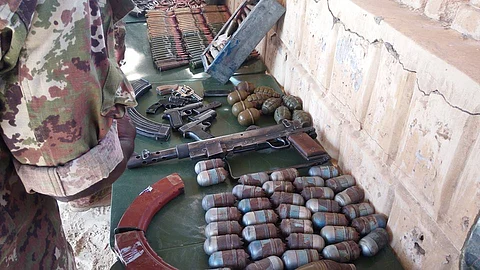

Al-Qaeda-affiliated militants have launched two major assaults in Mali over the past 48 hours, signaling a sharp escalation in the country's protracted civil conflict.
On Sunday, fighters from Jama'a Nusrat ul-Islam wa al-Muslimin (JNIM), a group linked to Al-Qaeda, attacked the town of Boulikessi in central Mali, killing at least 30 Malian soldiers. The assault enabled the jihadist group to seize control of a military base in the area, marking a significant loss for the government.
The following day, JNIM fighters launched a second high-profile attack, this time on a military airport in the strategic northern city of Timbuktu. The city has been under siege by JNIM forces since August 2023. Witnesses reported hearing sustained gunfire and explosions near the airbase.
In a statement issued Monday, the Malian military acknowledged that its forces had engaged in combat before “withdrawing,” strongly suggesting that government troops abandoned the facility. According to JNIM claims, Russian personnel—likely from the Wagner Group—were present at the base during the attack, though this has not been independently confirmed.
Mali has been engulfed in conflict since 2012, battling insurgencies by jihadist groups following the fallout from the 2011 collapse of Muammar Gaddafi’s regime in Libya, which destabilized much of the Sahel and Lake Chad Basin. These groups, including JNIM, have exploited the resulting power vacuum to gain territory and influence.
Last month, JNIM launched a devastating assault on the northern city of Djibo in neighboring Burkina Faso, overrunning an army base and killing over 100 civilians. It was described as one of the deadliest attacks in the region in recent years.
The recent wave of violence has taken a severe toll. Since early May, more than 500 soldiers from Mali, Burkina Faso, and Niger have been killed in clashes with jihadist and rebel groups operating across the region.
Following military coups in Mali (2021), Burkina Faso (2022), and Niger (2023), the newly formed Alliance of Sahel States (AES) has aligned itself with Russia for security support, distancing itself from former Western partners like France and the United States. This geopolitical realignment has increasingly transformed the Sahel into a new front in the global power struggle between the West and Russia.
As violence continues to surge and regional alliances shift, the Sahel appears poised for deeper instability, with no immediate end to the crisis in sight.